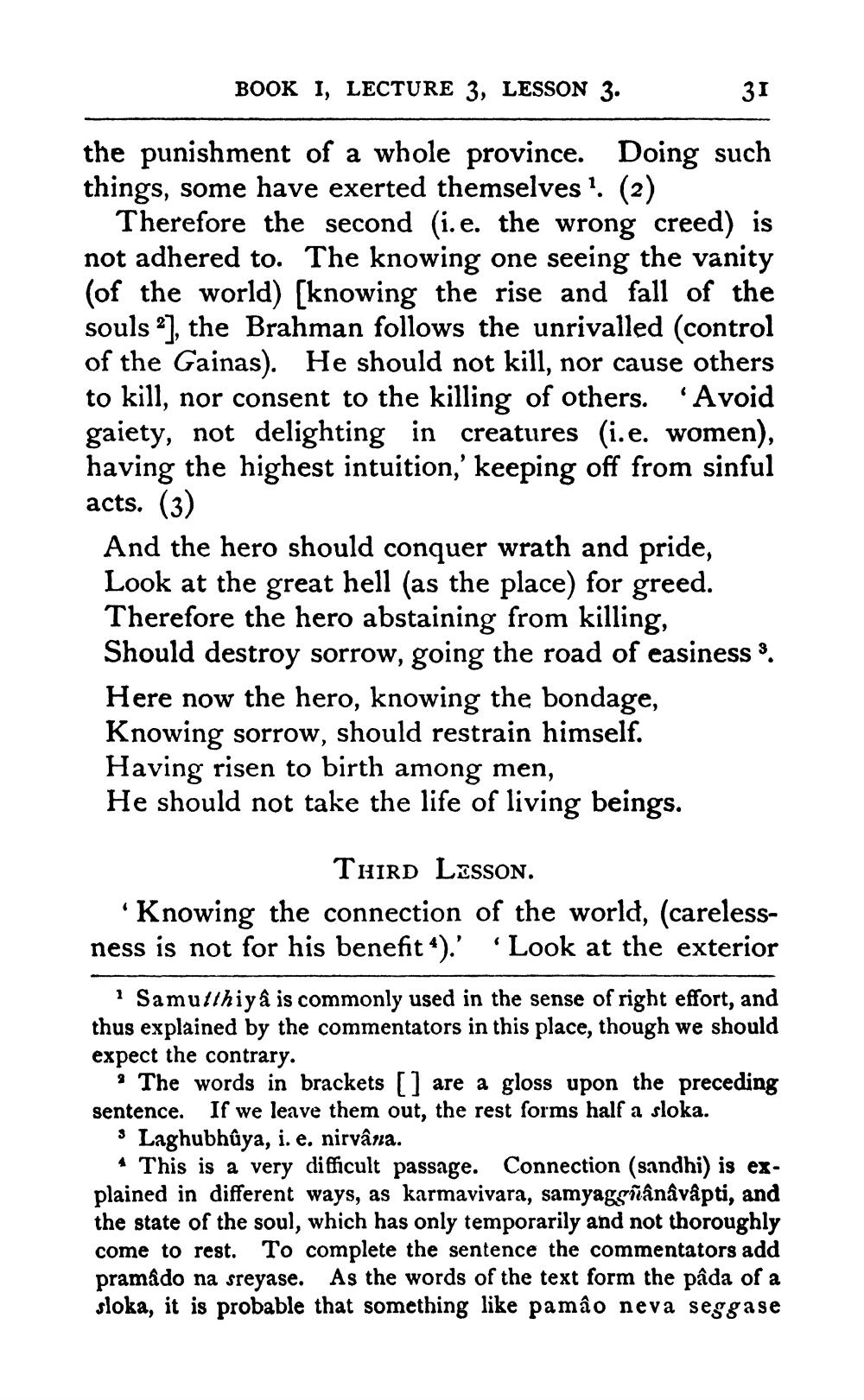________________
BOOK I, LECTURE 3, LESSON 3.
31
the punishment of a whole province. Doing such things, some have exerted themselves 1. (2)
Therefore the second (i.e. the wrong creed) is not adhered to. The knowing one seeing the vanity (of the world) {knowing the rise and fall of the souls 27, the Brahman follows the unrivalled (control of the Gainas). He should not kill, nor cause others to kill, nor consent to the killing of others. “Avoid gaiety, not delighting in creatures (i.e. women), having the highest intuition,' keeping off from sinful acts. (3) And the hero should conquer wrath and pride, Look at the great hell (as the place) for greed. Therefore the hero abstaining from killing, Should destroy sorrow, going the road of easiness . Here now the hero, knowing the bondage, Knowing sorrow, should restrain himself. Having risen to birth among men, He should not take the life of living beings.
THIRD Lusson. Knowing the connection of the world, (carelessness is not for his benefit 4).' 'Look at the exterior
Samutthiya is commonly used in the sense of right effort, and thus explained by the commentators in this place, though we should expect the contrary.
3 The words in brackets [] are a gloss upon the preceding sentence. If we leave them out, the rest forms half a sloka.
Laghubhûya, i. e. nirvana. 4 This is a very difficult passage. Connection (sandhi) is explained in different ways, as karmavivara, samyagşñânâvâpti, and the state of the soul, which has only temporarily and not thoroughly come to rest. To complete the sentence the commentators add pramado na sreyase. As the words of the text form the pâda of a sloka, it is probable that something like pamâo neva seggase




